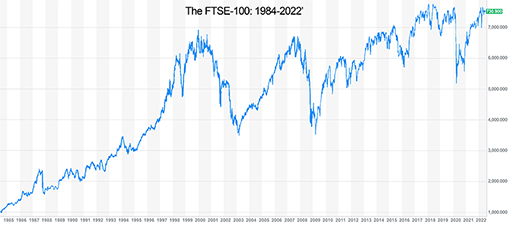10 Investments – the riskier (but possibly rewarding) side of saving up
Up until now we have focused on savings accounts where the money deposited is not at risk unless the institution defaults, and even then there is decent protection, as detailed earlier.
With investments (which can include shares, bonds or investment funds that can hold these types of assets), the investment itself can fall or rise in value which adds a significant risk, but can also lead to much bigger rewards. Do also note that while we don’t go into too much detail on the fees for investing, there is normally something to pay – whether to a broker to buy shares, a fund manager to manage your funds or the government in tax. So check before you invest.
Later we’ll explore investment funds, which represent the usual way that personal investors invest in shares and other assets such as commodities and property. This is done by pooling lots of investors’ money into a giant fund where a manager may invest that cash in all manner of different investment types – so you don’t need to be too active and can let someone else do the hard work for you (for a fee, of course).
You may think that investments like this are not for you, but if you have pension savings, then whether you know it or not, you are almost certainly an investor as your money will be in one or a number of funds. The next sections will help you learn more about how your money is invested.
To understand the nature of these funds, let’s first look at how the chief types of investments work in case you want to invest directly in them, or if you simply want to know the information to understand more about the building blocks of funds.

